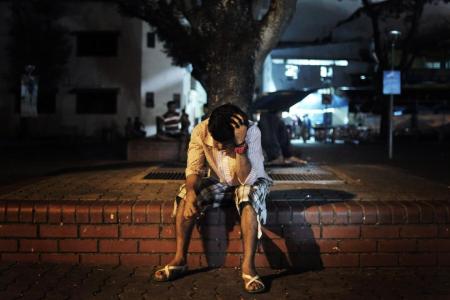Teatime: Migrant workers are no different from you and me
This is part of a weekly column in which we talk about anything under the sun
We see them sleeping on the streets, drinking by the roadside, and struggling with workplace injuries.
We talk about them in hushed tones, using labels like "foreign workers" or "Banglas" as if they are somehow different, somehow less than us.
But the truth is, they are people – just like you and me.
It's a truth I've been reminded of time and again, even in my early days as a journalist.
I wrote a piece about online racism in 2012, exposing how some Singaporeans, hiding behind screen names, would spew derogatory terms like "FTrash" (a play on the abbreviation "FT" standing for "foreign talent") when discussing foreign workers in online forums.
That article landed me in hot water – a few forum users, feeling exposed, decided to retaliate by doxxing me on social media and harassing my friends who tried to defend me.
While I was only 18 then and found the whole ordeal somewhat amusing (it still makes me chuckle, actually), it was also disheartening.
It revealed a disturbing reality – the prejudice I'd encountered was not isolated. And it’s a reality that, sadly, hasn't entirely faded away nearly 12 years later.
This week, we saw a number of news stories involving migrant workers, particularly those from Bangladesh. It’s a topic that’s sparked many discussions, but I can’t help but feel a sense of frustration at the underlying prejudice that seeps through some of these conversations.
The recent article about workers sleeping and drinking on the roads has painted a picture of them as a homogenous group, often stereotyped as reckless, irresponsible, and even a burden on society.
I can’t help but remember my own experience, where I’d regularly play badminton with a couple of Bangladeshi workers who lived in my neighbourhood.
They were surprisingly good at the game – my schoolmate and I were often left panting and struggling to keep up in doubles matches.
But more than their badminton skills, I remember them for their warmth, their humour, and their genuine fondness for their families back home.
These men were just like anyone else, they had dreams, aspirations, and stories to tell. They were hardworking, eager to learn and always ready with a smile.
In fact, a recent story highlighting the struggle of Bangladeshi worker Fazley Elahi, who is battling terminal cancer, offers a powerful testament to their capacity for humanity.
Despite facing immense personal hardship, he is choosing to spend his remaining days giving back to the community that has become his second home.
We often forget that these men have left behind their families, their homes and everything they know to come to Singapore to seek a better life. They toil tirelessly, often in difficult and dangerous conditions, contributing significantly to the fabric of our society.
They’re not simply “foreign workers” – they’re husbands, fathers, brothers and friends. They’re individuals with dreams, hopes and aspirations, just like any of us.
So next time you see a group of migrant workers gathered by the roadside, try to look beyond the stereotypes.
Don’t judge them based on their occupation. Instead, remember that they are people, just like you and me, with stories to tell and lives to live.
And some of them can easily give anyone a run for their money on the badminton court.
Get The New Paper on your phone with the free TNP app. Download from the Apple App Store or Google Play Store now



